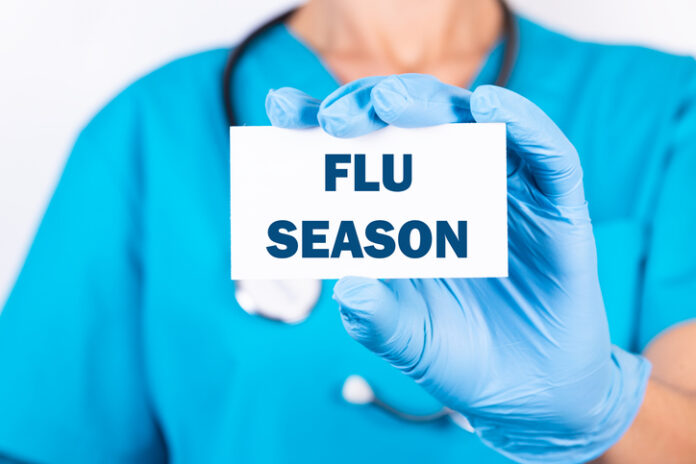The fear of a so-called wintertime “twin-demic” of flu and COVID-19 overwhelming hospitals is looking less and less likely, as flu rates so far are significantly below those of recent years.
The U.S. Centers for Disease Control and Prevention (CDC) reports rates of influenza in the first week of November, the beginning of flu season, were 0.2 percent. There have been no pediatric deaths from flu reported.
The World Health Organization found continued and increased testing for flu this year has yielded lower numbers than initially expected. Inter-seasonal levels in temperate areas of both the Northern and Southern Hemispheres are below typical levels for this time of year. The global numbers have significantly decreased.
In tropical South America, the Caribbean, and Central America, no cases have been reported. Influenza activity has been reported in tropical Africa, Southern Asia, and Southeast Asia.
In Australia, a flu season six months ahead of Northern Hemisphere countries has yielded promising results. Thirty-six flu deaths have been reported, as opposed to 812 last year at this time.
The Institute for Global Economic Growth states “the world may not experience much of the annual winter flu this year.”
Better Hygiene
The flu is five to 10 times deadlier for children than COVID is. The diminished prevalence of the flu adds another layer of protection for children and other vulnerable populations this season. A wintertime “twin-demic” of flu and COVID-19 overfilling hospitals is looking less and less likely.
COVID may help explain the flu reduction, says Jane Orient, M.D., executive director of the Association of American Physicians and Surgeons and a policy advisor to The Heartland Institute.
“Anecdotally, flu numbers drop with better hygiene measures,” said Orient. “There is no evidence that lockdowns are needed. Maybe the viruses compete with each other. Maybe exposure to one enhances the innate immune system.”
Interferon Effect
The concept of one virus competing for host cells and pushing out “competitor” pathogens is supported by the interferon effect. Interferons (INF) are cell proteins that trigger immune system defenses in response to pathogens.
“If you have influenza, it is very likely you cannot be infected with COVID-19, based on the interferon effect,” said Erwin Haas, M.D., an infectious disease expert and advisor to The Heartland Institute. “It prevents the spread of the virus from one cell to the next and is therapeutically given and commercially available.”
Named for its “interference” with viral spread, INF treatment for the coronavirus is under consideration.
Though flu numbers are low, the CDC continues to campaign for flu vaccinations, as state legislators and private education institutions increase immunization mandates. With its moderate to low efficacy, the vaccine may be unnecessary, especially in 2020-2021, says Haas.
Ashley Bateman (bateman.ae@googlemail.com) writes from Alexandria, Virginia.





















